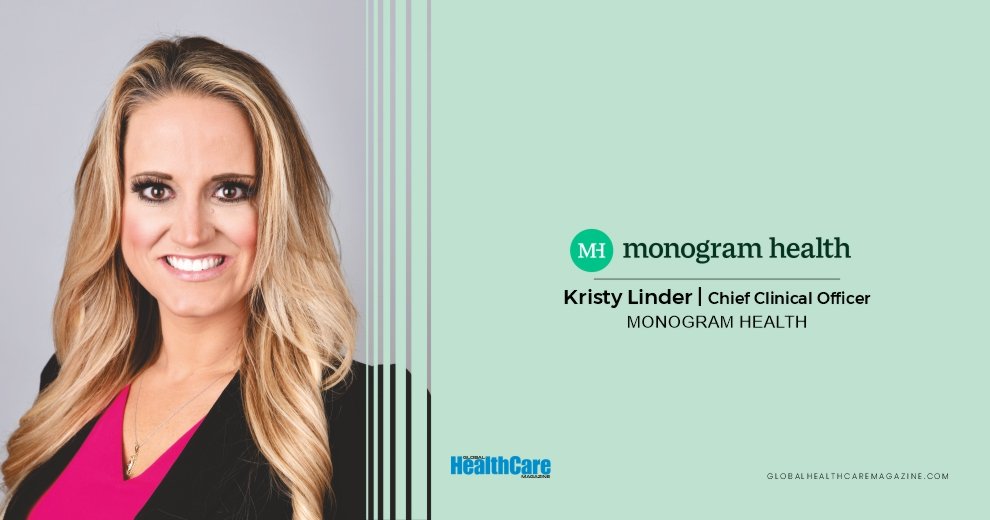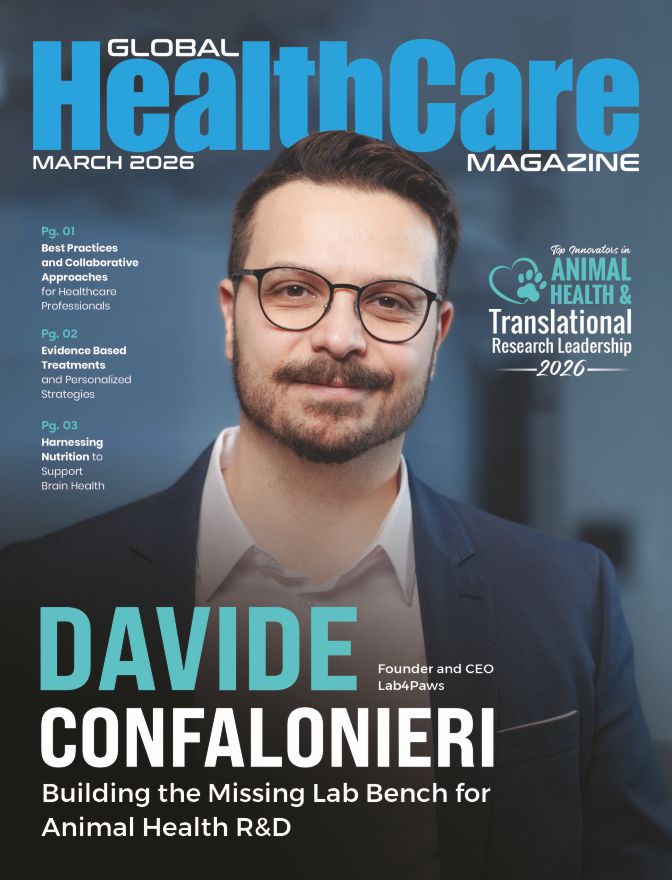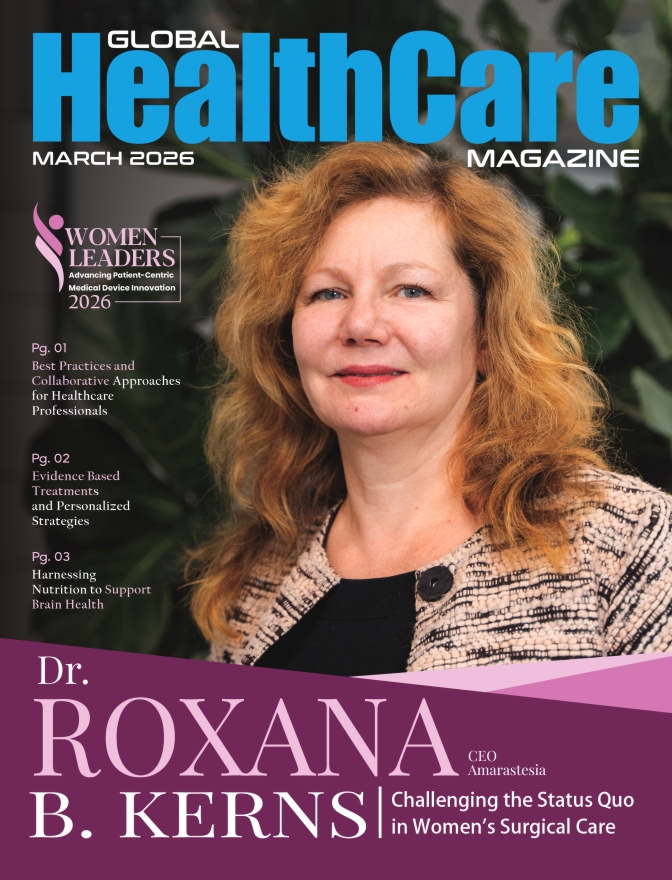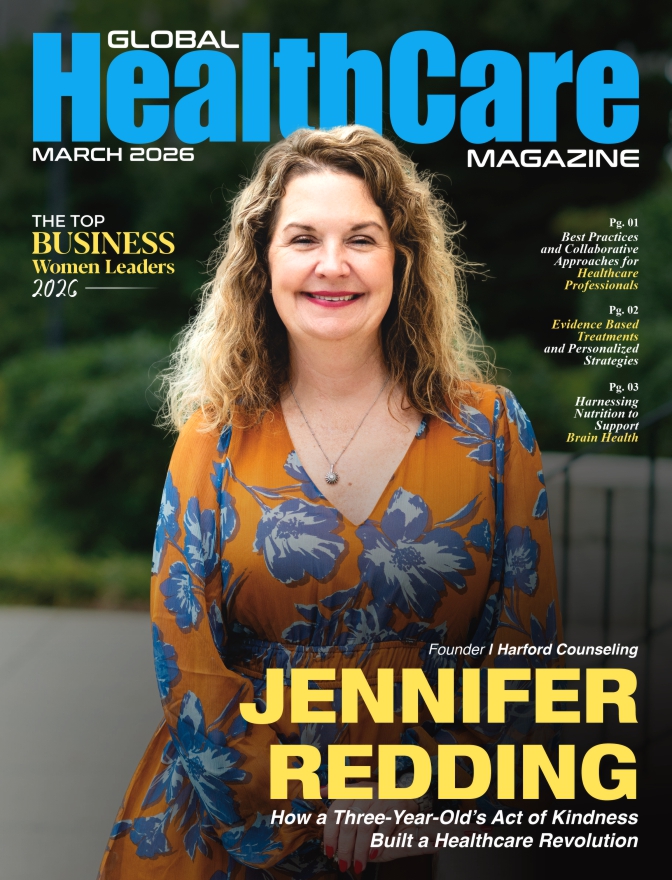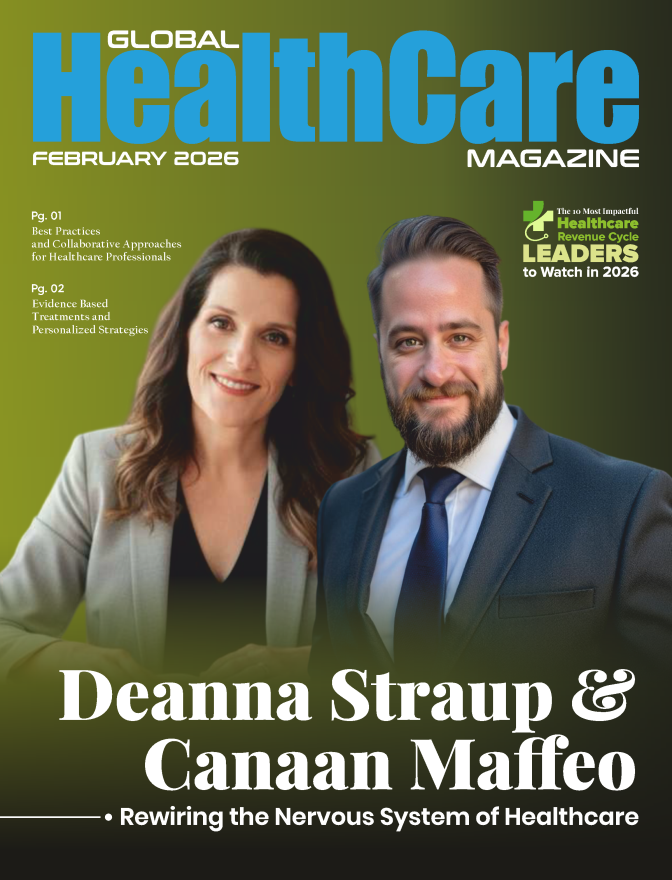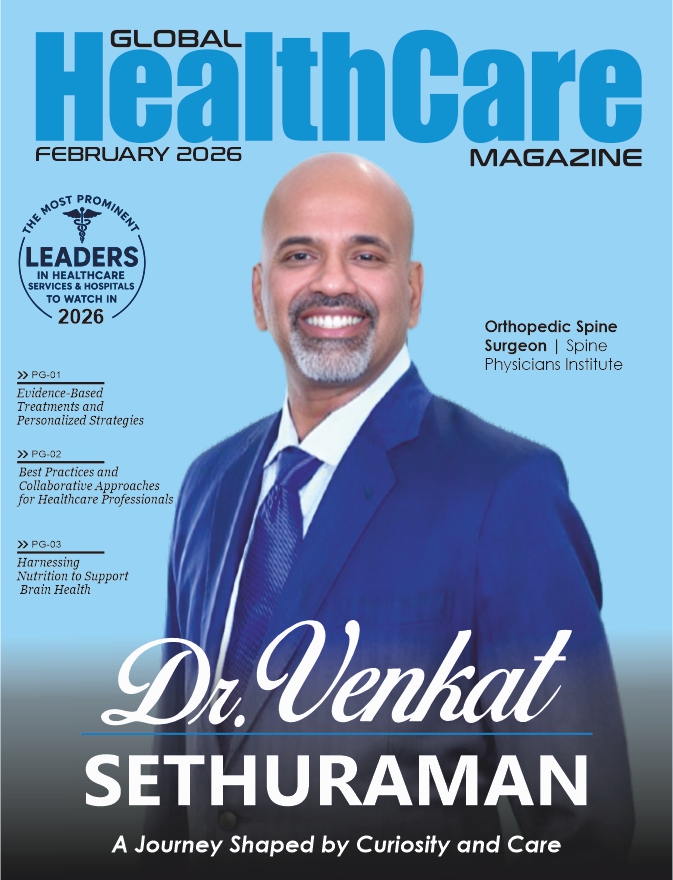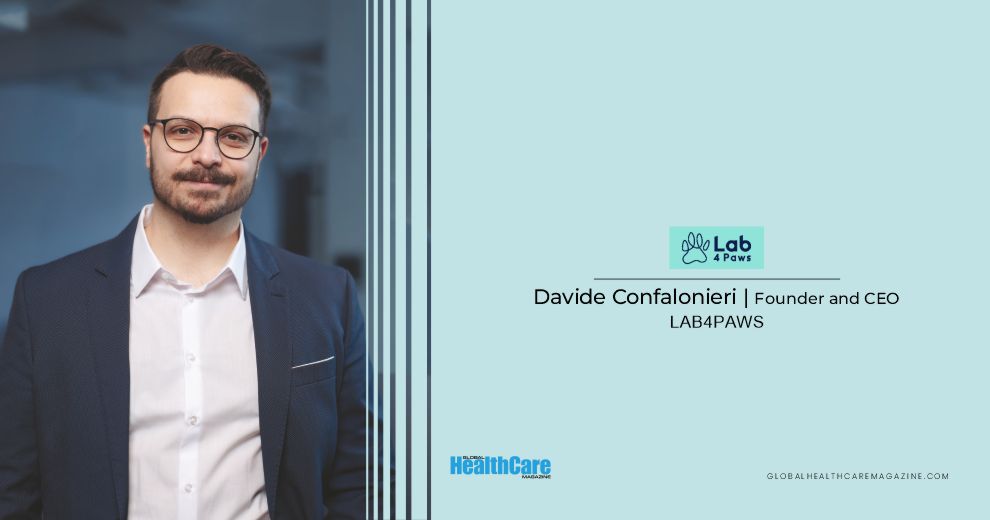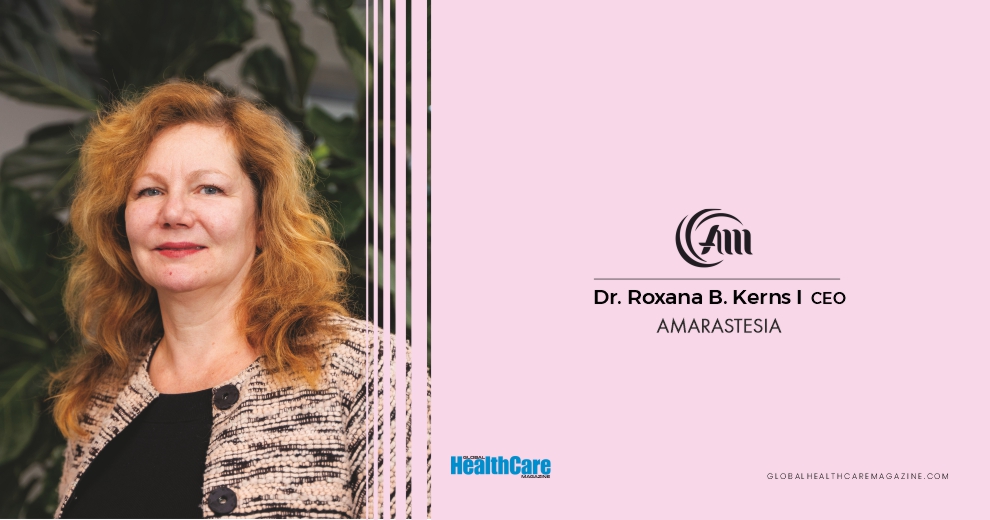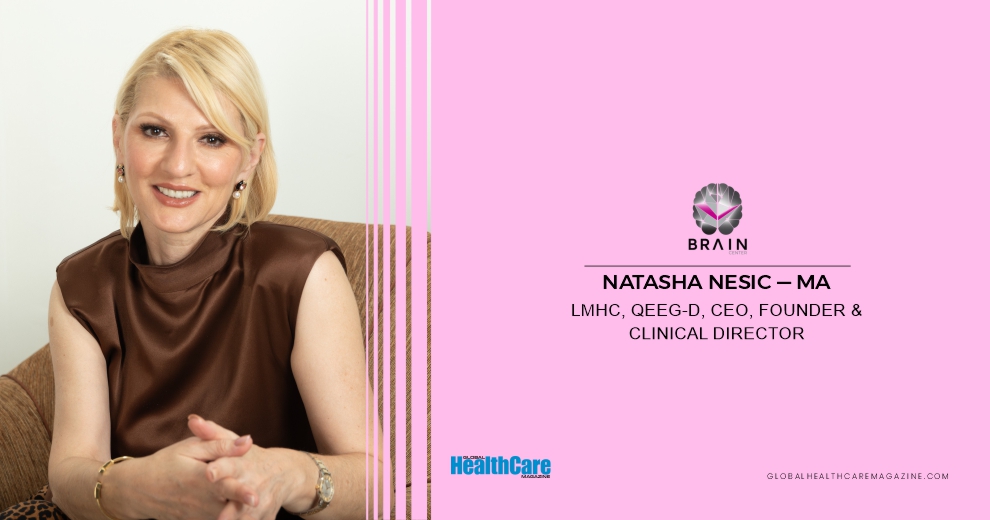To understand Kristy Linder, you must first appreciate the distinct worlds she has not just inhabited, but mastered. Picture a research chemist at the Centers for Disease Control and Prevention, meticulously leading projects on tobacco product regulation, immersed in the rigorous world of data and public health. Now, picture an NFL Cheerleader for the Atlanta Falcons, a model of discipline and resilience performing for thousands under the brightest lights. Then, picture a prominent nephrologist, navigating the complex physiology of kidney disease and building deep, lasting relationships with patients facing chronic illness.
These are not the biographies of three different women. They are facets of one. Today, as the Chief Clinical Officer of Monogram Health, Dr. Kristy Linder draws on every chapter of her remarkable journey. She is an innovator driven by a scientist’s precision, a leader who understands the power of high-performing teams, and a physician whose empathy was forged through years of frontline care. She has witnessed firsthand the frustrating gaps in the American healthcare system, the barriers that force the most vulnerable patients to overcome obstacle after obstacle. Her career is not just a profession; it is a relentless mission to close those gaps, to re-choreograph the intricate dance of healthcare delivery into a system that is more humane, more intelligent, and profoundly more effective.
From the Lab Bench and the Sidelines to the Bedside
After graduating from the University of Alabama in 2011 with a Bachelor of Science that uniquely combined Dance and Chemistry, Kristy joined the CDC as a research chemist. From 2011 to 2014, she was immersed in the world of public health, gaining deep experience in data analysis and research. She was recognized for her work, earning awards for Excellence in Laboratory Research and being honored by the CDC’s Department of Women’s Health. While she loved the intellectual rigor of science, she felt a pull toward a more personal connection. She felt called to a career where her work would have a more direct, immediate, and tangible impact on individual lives.
This calling led her to medicine. But even as she embarked on this new academic journey, another part of her was pursuing a different lifelong dream. From 2011 to 2013, while working as a scientist, she was also an NFL Cheerleader for the Atlanta Falcons. To an outsider, the two pursuits might seem worlds apart, but for Kristy, they were complementary. The experience, she says, taught her invaluable lessons in discipline, resilience, and the power of being a role model, principles that would become the bedrock of her future medical career. It was a masterclass in performing under pressure, in the relentless pursuit of perfection, and in the synergy of a team working in perfect sync.
This foundation in data, public health, and high-performance teamwork shaped her as she transitioned fully into medicine. She earned her Doctor of Osteopathic Medicine from the Philadelphia College of Osteopathic Medicine in 2017, completed her internal medicine residency at Arnot Ogden Medical Center in 2020, and finished her nephrology fellowship at the prestigious Emory University in 2022.
The Calling of Nephrology
Kristy’s choice to specialize in nephrology was deliberate. The field attracted her precisely because of its complexity. It is a discipline that demands a deep understanding of intricate physiology while also offering the unique opportunity to build longitudinal, meaningful relationships with patients. These are not one-off encounters; they are long-term partnerships with individuals and families navigating the life-altering realities of chronic kidney disease (CKD). It was the perfect synthesis of her analytical mind and her empathetic heart.
Upon completing her fellowship in July of 2022, Kristy joined The Kidney Clinic, LLC, a private practice in the Atlanta area. It was here, on the front lines of care, that her mission became crystal clear. Covering inpatient services at a vast network of hospitals, including Piedmont Atlanta, Emory Saint Joseph’s, and multiple Northside and Piedmont facilities, she saw the healthcare system not as a seamless continuum, but as a fragmented and often frustrating maze for patients.
Kristy witnessed the persistent barriers that undermine even the most advanced medical treatments. Patients were referred to nephrologists too late in their disease progression. There were profound disparities in access to education about dialysis options. She saw the chaotic and fragmented transitions patients endured as they moved from managing chronic kidney disease to requiring end-stage renal disease (ESRD) care. She saw them fall through the cracks between specialists, hospitals, and dialysis centers, often with devastating consequences for their health and quality of life. These experiences ignited a passion not just to treat the disease, but to fix the broken system that surrounded it.
The Monogram Model: A New Blueprint for Care
Kristy’s search for a better way led her to Monogram Health in 2023. The company’s mission immediately resonated with her. Monogram was founded to transform the way health care is delivered for those with polychronic disease so they can lead healthier, happier, and more fulfilling lives. Monogram Health brings personalized, in-home, multidisciplinary treatment and care directly to the patient. It was a model designed specifically to fill the gaps in care she had seen firsthand.
Monogram’s approach was built to address the whole person, including their broader medical, behavioral, and social needs. It was the system Kristy wished had existed for her patients in private practice. She joined the company as the market physician executive for the Georgia region, where her leadership and drive quickly elevated Georgia to become one of the highest-performing markets.
Kristy’s success did not go unnoticed, and she was soon asked to serve as the interim regional market executive for the entire East Region, where she again successfully improved clinical outcomes and advanced quality metrics. Her rapid ascent was a testament to her unique ability to translate a powerful vision into operational excellence.
The CCO’s Playbook
Now, as Chief Clinical Officer, Kristy applies her diverse experiences to her national leadership role. Her strategy is built on three core pillars, a playbook designed for consistency, intelligence, and humanity.
The first is a commitment to data-driven insights. Drawing on her background as a research chemist, she champions the use of sophisticated dashboards and predictive models to track performance, risk-stratify patients with CKD, congestive heart failure, and diabetes, and intervene early before a patient’s condition deteriorates.
The second, and perhaps most crucial, pillar is people investment. “I’m deeply passionate about giving our clinicians and teams a voice,” Kristy states. She believes the frontline teams—the nurses, physicians, social workers, and care managers in the field—often know best where the gaps are. She actively creates channels for them to share concerns and propose solutions, listening carefully to every piece of feedback. For her, investing in her team’s work experience directly translates into better patient care.
The final pillar is consistency in care delivery. Kristy’s focus is on scaling evidence-based clinical protocols across the nation to reduce variation in care, while still allowing for the flexibility needed to tailor treatment to each individual patient. This balance of analytics, empowerment, and standardization is how she builds high-functioning teams that deliver meaningful results, ensuring that a patient in Georgia receives the same high standard of care as a patient in California.
Leadership Under Pressure
Kristy’s leadership philosophy was forged in the crucible of a significant organizational challenge. Kristy paused and took a deep dive to understand the root causes of potential burnout and inefficiencies. Her response was methodical and people-centered. She built a structured mentorship program for pod leadership, medical directors, and clinicians, a program focused on retention, resilience, and readiness. She partnered closely with the IT team and frontline clinicians to co-design and optimize documentation and workflows, using their direct feedback to reduce redundancies and eliminate points of friction.
This collaborative approach reinforced her core belief that leaders who listen, collaborate, and invest in their teams are the ones who drive the best outcomes.
Redefining Success
By any traditional measure, Kristy’s career has been a string of remarkable accomplishments. She has been recognized as one of the top nephrologists and internists in Atlanta by US News in both 2022 and 2025. She received the NCQA Innovation Award for Quality Improvement for her “Transition to Home” project in 2019, an honor she considers a defining moment because it proved that systemic changes in care delivery could be scaled nationally. Most recently, she was named one of the ‘Rising Star Women Leaders in Medicine for 2025’ by Women We Admire.
But when Kristy speaks about her proudest accomplishments, she looks beyond the accolades. What she values most are the measurable improvements in patient outcomes: longer preservation of kidney function, fewer hospitalizations, and a higher quality of life for the people Monogram serves. She finds immense pride in watching the new leaders she has mentored thrive in their own roles, knowing that her investment in people multiplies its impact far beyond her own reach.
The Next Frontier: Integrated and Empowered Care
Looking ahead, Kristy is energized by the future of Monogram and the field of nephrology. She is excited about the company’s continual growth and the opportunity to scale its polychronic care model into new markets. For her, the next frontier is the deep integration of specialty care. She is working with several Monogram departments to design a platform that seamlessly combines nephrology with cardiology, endocrinology, pulmonary, palliative care, and psychiatry to address the full complexity of patients’ needs.
Kristy is also deeply committed to advancing patient education and advocacy, particularly around the sensitive and critical conversations about renal replacement therapy. This means ensuring every eligible patient has support in accessing a kidney transplant. It also means empowering patients and families to understand and choose conservative kidney management when it better aligns with their age, comorbidities, or personal goals of care. By elevating these conversations, she believes we can empower patients to make informed choices that honor their values, a shift she feels will define the next era of nephrology.
The Art of Presence
With a role of such national importance, the question of work-life balance is inevitable. For Kristy, the key is not about splitting time evenly, but about being fully present in each moment. Away from work, she finds joy and renewal in creative outlets. She still dances, she engages in arts and crafts, and she refinishes furniture. She loves to travel with her husband and spend time outdoors.
Above all, the time Kristy shares with her daughters and family is what keeps her centered. These experiences, she says, give her the energy and perspective to return to her patients and her teams with focus, compassion, and her very best self. It is her leadership philosophy in action: leading with empathy, data, and a clear vision. “Healthcare is about people,” she reminds us, “our patients, but also the clinicians and teams caring for them.” Her advice to future leaders is a reflection of her own journey: embrace change, listen deeply to your teams, and never, ever lose sight of the patient at the center of it all.
Quotes
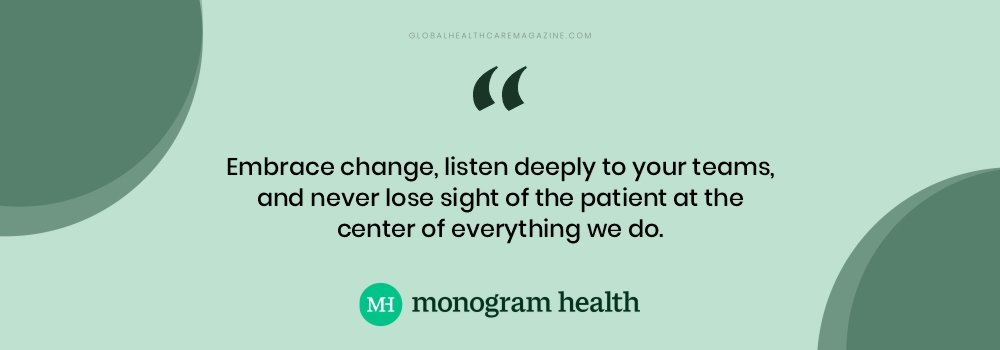
Also Read: The 10 Most Impactful Healthcare Leaders to Watch in 2025

